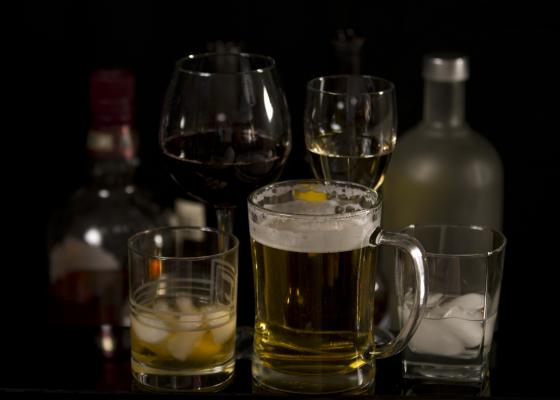
Image courtesy of the American Heart Association.
October 22, 2019 — Drinking small amounts of alcohol frequently is linked with a higher likelihood of atrial fibrillation than binge drinking, according to new research in EP Europace, a journal of the European Society of Cardiology (ESC).[1]
“Recommendations about alcohol consumption have focused on reducing the absolute amount rather than the frequency,’ said study author Jong-Il Choi, M.D., Ph.D., of Korea University College of Medicine and Korea University Anam Hospital, Seoul, Republic of Korea. “Our study suggests that drinking less often may also be important to protect against atrial fibrillation.”
Atrial fibrillation is the most common heart rhythm disorder and raises the risk of stroke by five-fold.[2] Symptoms include palpitations, racing or irregular pulse, shortness of breath, tiredness, chest pain and dizziness.[3]
A prior meta-analysis found a linear correlation between alcohol and atrial fibrillation: Risk increased by 8 percent for every 12 g of alcohol (one drink) consumed per week.[4] But it was not clear which is more important: the total amount of alcohol or the number of drinking sessions.
This study examined the relative importance of frequent drinking versus binge drinking for new-onset atrial fibrillation. The analysis included 9,776,956 individuals without atrial fibrillation who underwent a national health check-up in 2009, which included a questionnaire about alcohol consumption. Participants were followed-up until 2017 for the occurrence of atrial fibrillation.
The number of drinking sessions per week was the strongest risk factor for new-onset atrial fibrillation. Compared with drinking twice per week (reference group), drinking every day was the riskiest, with a hazard ratio (HR) of 1.412, while drinking once a week was the least risky (HR 0.933). Binge drinking did not show any clear link with new-onset atrial fibrillation.
“Our study suggests that frequent drinking is more dangerous than infrequent binge drinking with regard to atrial fibrillation,” said Choi. “The number of drinking sessions was related to atrial fibrillation onset regardless of age and sex. Repeated episodes of atrial fibrillation triggered by alcohol may lead to overt disease. In addition, drinking can provoke sleep disturbance which is a known risk factor for atrial fibrillation.”
In keeping with other studies, weekly alcohol consumption was related to atrial fibrillation. There was a 2 percent increase in the risk of new-onset atrial fibrillation for each gram of alcohol consumed per week. Compared to mild drinkers, those who drank no alcohol, moderate, or high amounts had 8.6 percent, 7.7 percent and 21.5 percent elevated risks, respectively.
Choi said the protective effect of mild drinking needs to be confirmed. “It is not clear if this is a true benefit or a confounding effect of unmeasured variables,” he said.
He concluded: “Atrial fibrillation is a disease with multiple dreadful complications and significantly impaired quality of life. Preventing atrial fibrillation itself, rather than its complications, should be our first priority. Alcohol consumption is probably the most easily modifiable risk factor. To prevent new-onset atrial fibrillation, both the frequency and weekly amount of alcohol consumption should be reduced.”
For more information: www.academic.oup.com/europace
References
1. Kim Y.G., Han K.D., Choi J.I., et al. Frequent drinking is a more important risk factor for new-onset atrial fibrillation than binge drinking: a nationwide population-based study. Europace. 2019. doi:10.1093/europace/euz256.
2. 2016 ESC Guidelines for the management of atrial fibrillation developed in collaboration with EACTS. Eur Heart J. 2016;37:2893–2962. doi:10.1093/eurheartj/ehw210.
3. Learn to recognise signs and symptoms of atrial fibrillation: https://www.afibmatters.org/en_GB/Signs-and-symptoms .
4. Larsson S.C., Drca N., Wolk A. Alcohol consumption and risk of atrial fibrillation: a prospective study and dose-response meta-analysis. J Am Coll Cardiol. 2014;64:281–289. doi:10.1016/j.jacc.2014.03.048.


 December 19, 2025
December 19, 2025 









